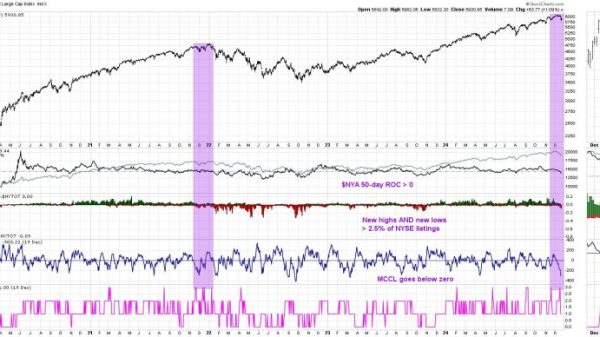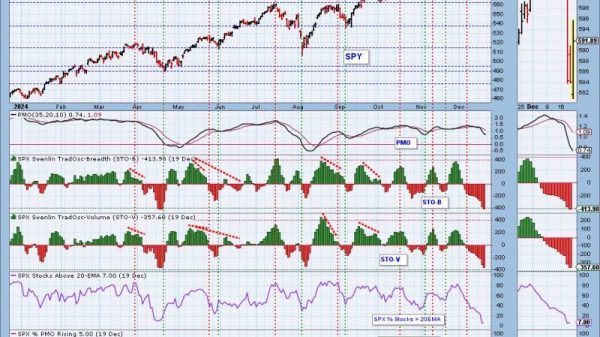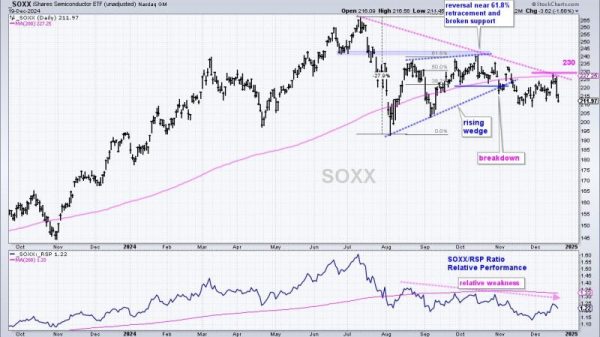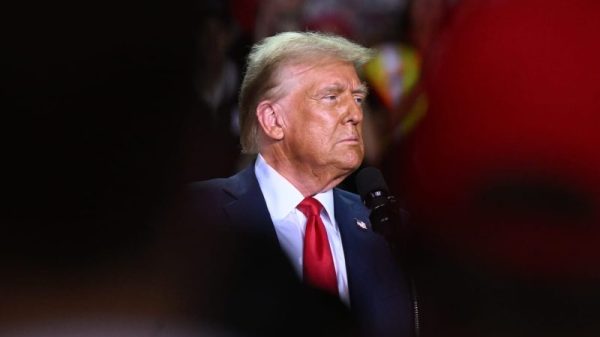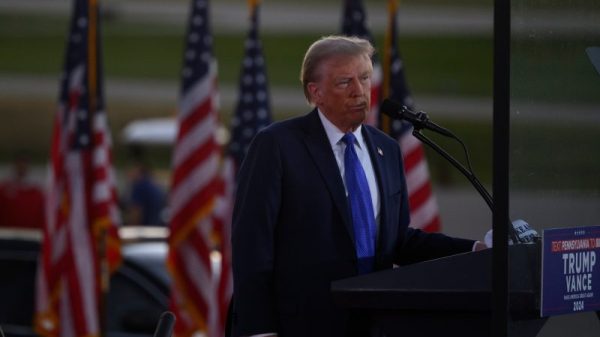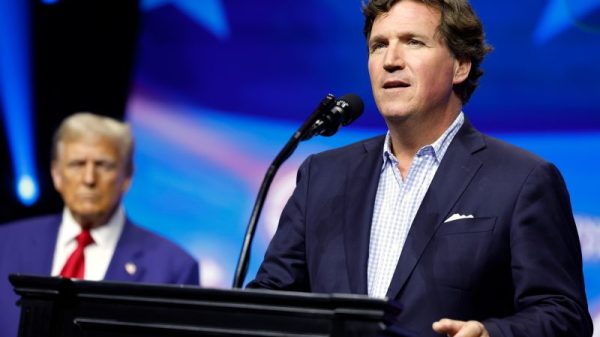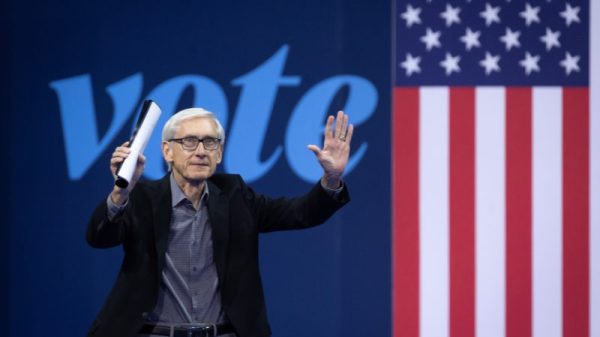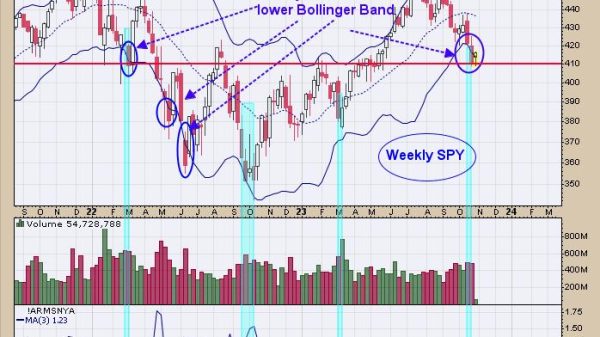Senate Republican leader Mitch McConnell (R-Ky.) and former South Carolina governor Nikki Haley have spent the first months of this election year fighting losing battles — separate but related. Their losses highlight the victory of Donald Trump’s “America First” over Ronald Reagan’s “tear down this wall” as the foreign policy doctrine of the Republican Party.
Trump’s reshaping of the Republican Party has been an evolving story. As president, he embraced some traditional Republican positions, for example on tax cuts for the wealthy. But he moved the party from one that pushed for free trade to one that pushed tariffs. Rather than trying to rein in government, he spent freely and allowed the national debt to balloon.
Nowhere, however, has his influence been more pronounced and potentially consequential than in what has become a full reversal of the internationalism that was central to Republican orthodoxy through most of the post-World War II era. Both McConnell in his role in the Senate and Haley as Trump’s last remaining challenger for the GOP nomination for president have vigorously opposed this part of Trump’s policy prescriptions.
Haley has lost contests to Trump in one state after another, but has refused to do what Trump had expected, which was to graciously concede defeat and step to the sidelines. She faces another brutal series of contests in the coming days, with 15 alone on Super Tuesday, which are likely to add significantly to Trump’s growing delegate lead.
She has said Trump was the right president at the right time. She agrees with many of his domestic politics, though not his fiscal stance. She served in his administration as United Nations ambassador. She has stepped up her criticism of him as a man unhinged. Where she parts company most emphatically is on the question of America’s role in the world.
She likes to say “the world is on fire,” with conflicts in Ukraine and the Middle East and brewing problems elsewhere. She advocates more military aid for Ukraine and argues against Trump’s “America First” worldview. Her argument, shared by others, is that a retreat by the United States from a leadership role in the world leaves both this country and the world at large less safe in the face of threats from Russia, China, Iran and North Korea.
She harks back to a different Republican Party, a party that has been in retreat since Trump first ran for president. She wins votes — 20 percent or 30 percent or even 40 percent in states where she has competed — but she is not winning the argument.
If the next round of primaries goes as expected, with Trump triumphant, Haley will face more calls to withdraw. She has been defiant in resisting those calls to date, marching to the beat of her own drum. But to what end? For there is little to suggest that she can now or in the near future arrest the inward turn within her party.
McConnell announced on Wednesday that he will step down as Senate leader in November, ending the longest run as a party leader in the Senate’s history. Many factors contributed to the decision, including his age and his health as well as a painful family loss.
But McConnell was clear in acknowledging that there was more than a losing battle against Father Time that brought him to the decision. “Believe me, I know the politics within my party at this particular moment in time,” he said in announcing his decision. “I have many faults. Misunderstanding politics is not one of them.”
Like Haley, McConnell agreed with Trump on many issues, especially for what will be remembered as McConnell’s most significant and controversial accomplishment: the remaking of the federal judiciary and the Supreme Court. This was as much or more a McConnell initiative as a Trump priority.
McConnell’s hardball tactics in that fight will not be forgotten. He balked at filling one vacancy in 2016 while President Barack Obama was still in office, refusing even to allow a hearing on Obama’s nominee, current Attorney General Merrick Garland. That gave Trump the opportunity to nominate conservative Justice Neil M. Gorsuch in early 2017.
Weeks before the 2020 election, McConnell rammed through another Trump nominee, Amy Coney Barrett. In between, Trump nominated and McConnell helped facilitate the confirmation of Justice Brett M. Kavanaugh.
That 6-3 conservative majority produced the most politically explosive decision of recent times in 2022, the case of Dobbs v. Jackson Women’s Health Organization, which overturned Roe v. Wade and ended half a century of the constitutional right to an abortion.
By his actions, McConnell endeared himself to conservatives but became a reviled figure, particularly on the left, leaving a permanent scar on his legacy. And yet, for all he did with regard to the judiciary, his increasingly open disdain for Trump and Trump’s petulant hostility toward him have left him isolated within his party.
His missed opportunity to prevent Trump from running in 2024 came when he voted to acquit the former president in the impeachment trial resulting from the Jan. 6, 2021, storming of the Capitol, despite excoriating Trump for his role in the attack after the acquittal.
McConnell was elected to the Senate in 1984, the same year Reagan scored a landslide reelection victory. He has seen the world through the prism of the Reagan doctrine, which espoused the need for robust U.S. leadership in the world. Reagan successfully challenged the Soviet Union, leading to his memorable call to Soviet leader Mikhail Gorbachev to tear down the Berlin Wall. The wall came down after Reagan left office, and the Soviet Union collapsed soon after. That is the world in which McConnell was shaped.
The Trump doctrine is the reverse of the Reagan doctrine — a pulling back from world leadership, an insular rather than an expansive view of the United States, a feeling that others should shoulder the burden, and even a belief that the United States has been used and abused by its allies.
Rather than challenging the Russians, Trump long has cozied up to Russian President Vladimir Putin. He has hectored leaders of allied nations and offered praise to authoritarian leaders who have risen around the world.
Most notably, he has repeatedly denigrated the NATO alliance, which has been a bulwark against Soviet and later Russian aggression. Recently, he offered a green light to the Russians to “do whatever the hell they want” to NATO countries that don’t spend enough on defense.
Statements like that are the reason there is as much concern among U.S. allies about what a second Trump presidency would mean for them and for the world at large.
Today, one big issue that separates both McConnell and Haley from Trump is Ukraine and whether the United States will maintain its commitment to help supply that nation with the arms and other equipment needed to continue its resistance in the face of Russia’s invasion two years ago.
McConnell and Haley believe it is essential to do so. The followers of Trump resist. Opposition among elected officials is stronger in the House, where Republicans more directly reflect — or accept — Trump’s “America First” views.
But even in McConnell’s Senate, many senators appear to stand closer to Trump. When the Senate approved the $95 billion package for Ukraine, Israel and other U.S. allies, McConnell voted in favor but 26 of his Republican colleagues voted no.
McConnell said he plans to serve out his current term, which ends in early 2027. As a former leader, he will have more freedom to speak for himself, but will his voice resonate with the power it once had? Haley has given no indication of what will follow her campaign for the presidency. Will she use her voice to continue to challenge Trump’s foreign policy views, especially if he wins in November, in the hope of rebuilding a consensus for Reaganism?
This has been a long winter for both McConnell and Haley. As one announces his exit as leader and the other contemplates what comes after Super Tuesday, it is clear they speak for a Republican Party that barely exists in Trump’s world.







